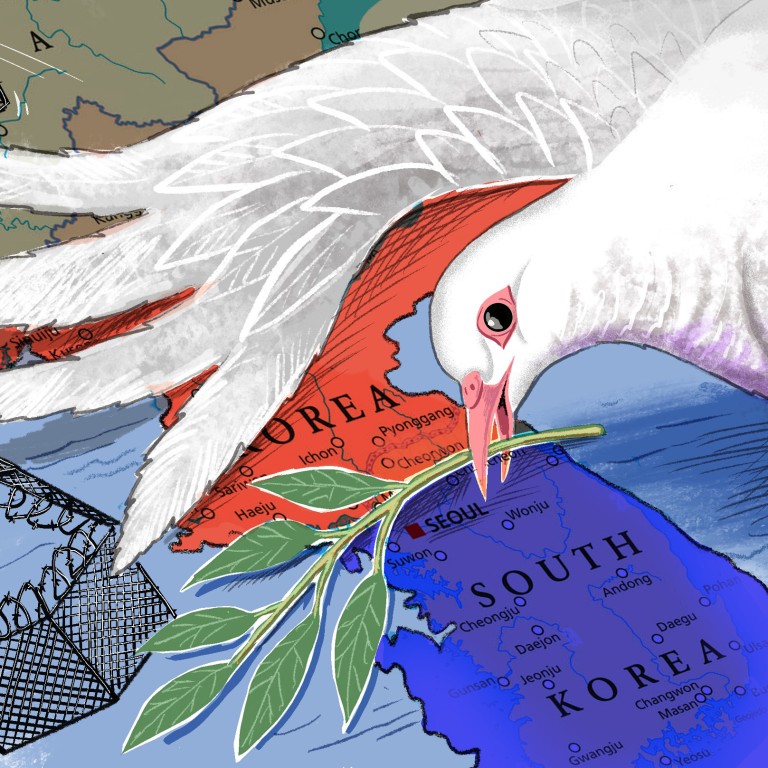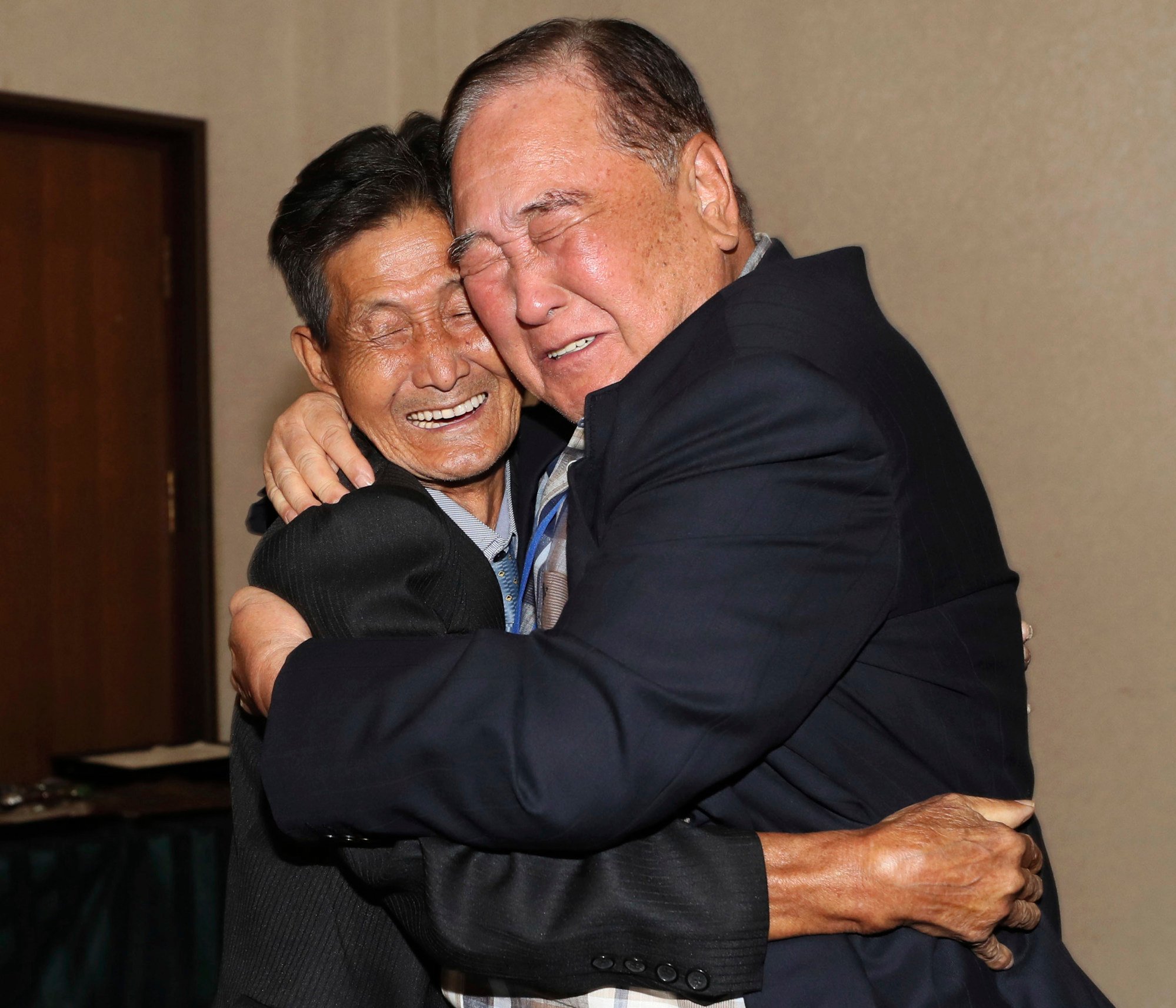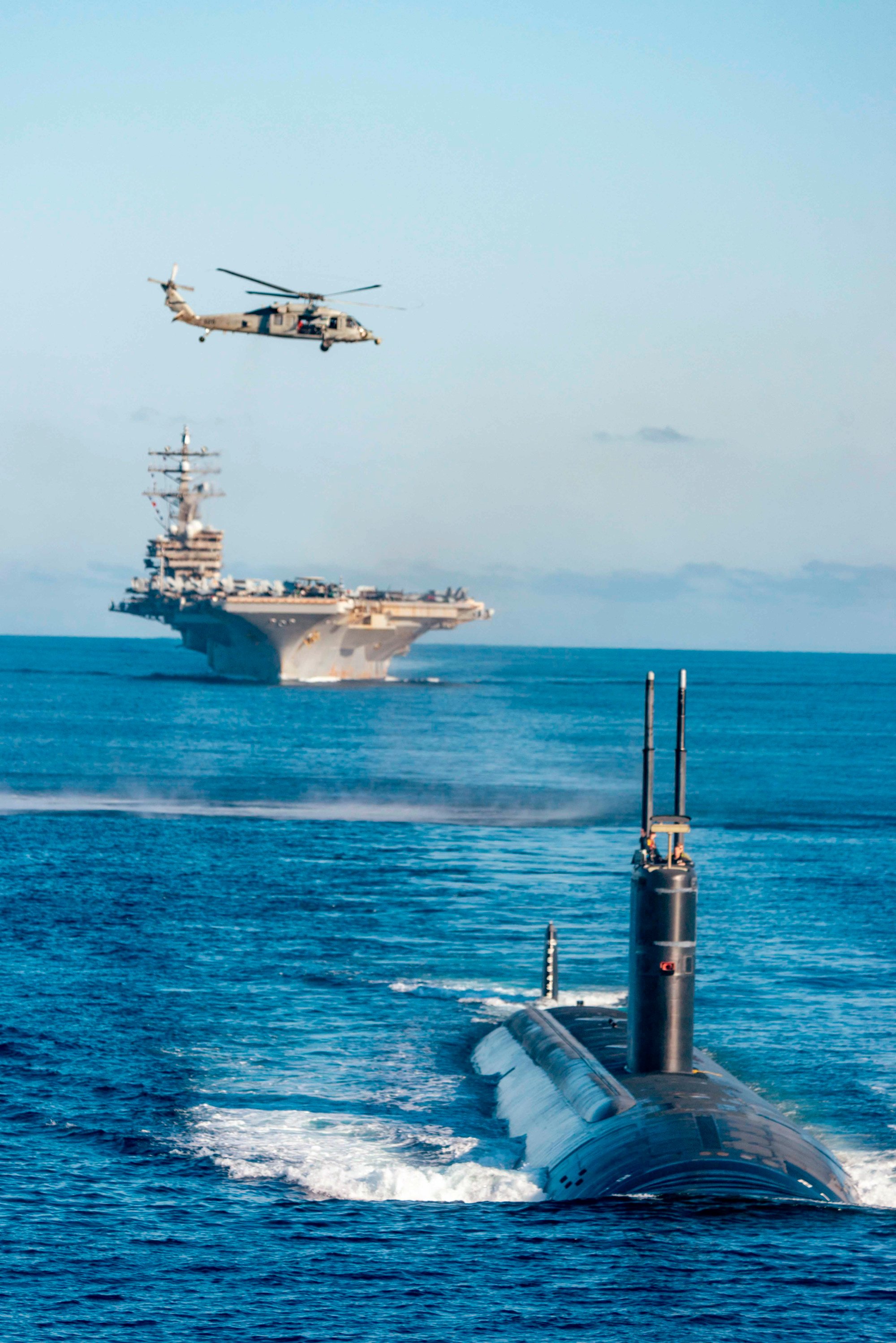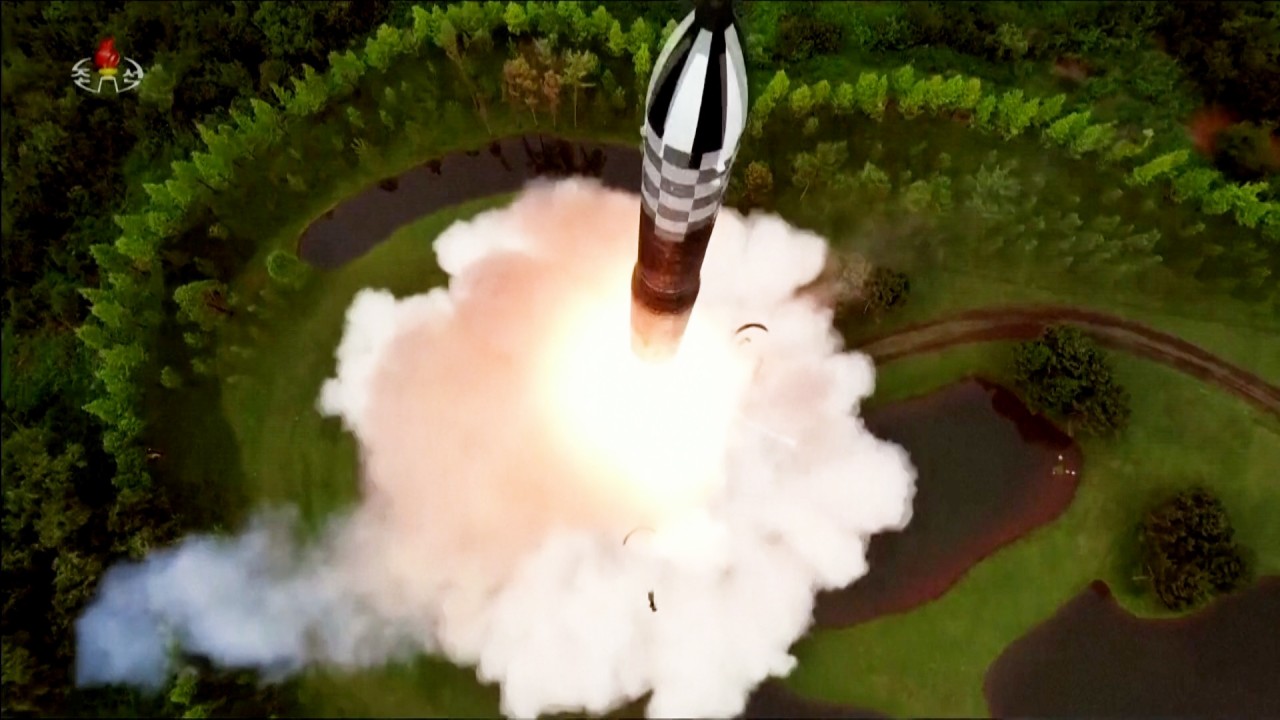
Korean war must formally end to break the dangerous nuclear impasse
- The current status quo encourages military build-ups and aggressive posturing while impeding sensible solutions to North Korea’s isolation and economic impoverishment
- A peace treaty must be negotiated, and the US must drop its unrealistic requirement for complete and verifiable denuclearisation of North Korea
While the US waits for North Korea to give up its nuclear weapons, the unresolved status of the Korean war fuels tensions between North and South Korea and contributes to the instability of the entire region.
As such, it is imperative for the parties concerned to declare an end to the Korean war and take steps towards signing a legally binding peace treaty. Such a treaty would become a positive condition for improvements on various levels, including security, humanitarian and economic fronts.
In Pyongyang’s eyes, without a peace treaty, the US could attack North Korea at any time. This motivates it to develop and maintain a nuclear weapons programme to safeguard the security of its regime.
North Korea’s nuclear weapons don’t just pose a threat to South Korea or Japan; since they can now reach the US mainland, the threat has become a global problem.
Besides security issues, humanitarian concerns also abound. The war solidified the division of the Korean peninsula at the 38th parallel, which resulted in the separation of thousands of families. The absence of a peace treaty means that North and South Korea remain enemies and that movement of people across the border is strictly forbidden. Many families remain separated, with little chance of hearing from their loved ones unless peace is attained.
According to South Korean government data, more than 3,600 South Koreans died last year without having a chance to reunite with their family members in North Korea. In total, around 134,000 South Koreans were registered for family reunions but only 42,624 remain alive, with almost 66 per cent of them now aged 80 or older.

The lack of peace also further limits international aid and development efforts, compounding the difficulties faced by the North Korean people. A well-negotiated peace treaty would remove the government’s need for continuous military build-up and open the doors for much-needed external investment that would improve the lives of North Korean citizens.
The current status quo hinders the peninsula’s potential to become an economic hub in Northeast Asia. With peace, inter-Korean economic projects that have been in the planning for years could finally be implemented or resumed, marketisation in the North could flourish to new levels, cross-continent railways could be built, and new trade opportunities and greater regional economic integration and cooperation would be possible.
Kim Jong-un’s miscalculations leave his North Korean regime hanging by a thread
Allowing the war to go on for the foreseeable future brings zero benefits and comes with hefty risks. The armistice signatories – North Korea, the US (representing the UN Command) and China – as well as South Korea (a direct warring party), must prioritise the long-term stability and security of the region and the world and pursue a diplomatic process that will result in an end-of-war declaration and ultimately a peace treaty.
The first course of action should be to implement confidence-building measures between the parties, especially between the North and South and the US and North Korea. Measures could include people-to-people exchanges, cooperation on humanitarian issues, sports diplomacy and academic exchanges, and limited tourism programmes. This would help set a strong foundation for consistent diplomacy.

These measures should be reciprocated with the easing of sanctions and the cancellation of joint military drills by the US and South Korea, as well as those involving Japan. Energy assistance, humanitarian aid and investment opportunities could be offered, and North Korea removed from the list of state sponsors of terrorism.
In 2021, North Korean leader Kim Jong-un’s sister, Kim Yo-jong, emphasised this view. As long as the “double-dealing standards, prejudice and hostile policies” towards North Korea persist, she said, it does not make any sense to declare an end to the war.
Peace is possible on the Korean peninsula if the parties choose cooperation, set aside their differences, make compromises, and negotiate with a mindset focused on the long-term good of the region and the world. The armistice must urgently be replaced by peace to avoid a disastrous scenario that would negatively affect millions of people for generations to come.
Gabriela Bernal is a North Korea analyst and PhD scholar at the University of North Korean Studies in Seoul, South Korea


